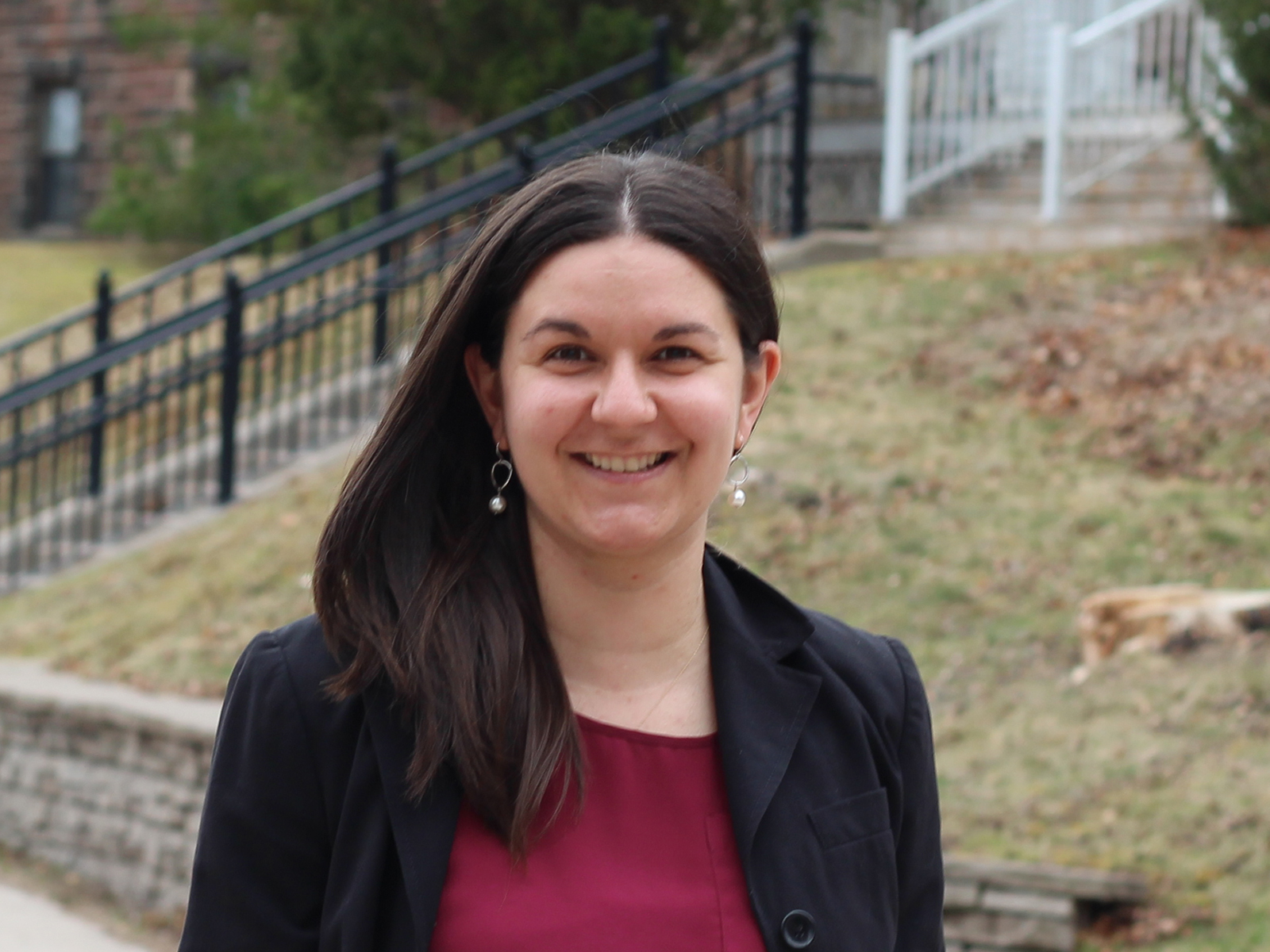Mount Allison biochemistry professor Dr. Jill Rourke appointed as Canada Research Chair (CRC)
SACKVILLE, NB — Mount Allison University biochemistry professor Dr. Jill Rourke has been appointed as a Tier 2 Canada Research Chair in Cell Signalling and Pharmacology for a 5-year term, commencing April 1, 2024, valued at $600,000.
The CRC program stands at the centre of a national strategy to make Canada one of the world's top countries in research and development. Chairholders aim to achieve research excellence in engineering and the natural sciences, health sciences, humanities, and social sciences.

“I feel so grateful for the tremendous supports I have received at Mount Allison that helped to make this a reality,” says Rourke. “None of the work that led to this opportunity would have been possible without the generosity and support of my colleagues in the chemistry and biochemistry department, the talented students with whom I have the privilege of working, and the ever-supportive office of research services.”
Rourke’s research investigates how human cells communicate with each other and how micro and macronutrients, toxins, and imbalances can affect this communication.
Since taking her first signal transduction course as an undergrad, Rourke has been captivated by the concept of cell communication through chemical signals.
“When I discovered that the field of pharmacology can work to understand this communication and use medications to repair dysfunctional cellular interactions, I was fascinated,” says Rourke. “I became hooked on the idea of researching fundamental questions about how our cells detect their environment, particularly their nutrient status, and how we can leverage this knowledge to improve treatments for metabolism-related diseases.”
At the cornerstone of the various projects the CRC will support is a desire to understand the fundamental mechanisms of how cells sense various natural and synthetic substances that come from our food and our metabolism.
“For example, we are working to understand how cells within the gut detect and change their physiology in response to non-nutritive sweeteners like sucralose, which is found in Splenda,” says Rourke.
The CRC funding will also support similar work on amino acids, molecules that form the building blocks of all our cellular proteins, and molecules that are produced with exercise and serve as important regulators of appetite. This work will use cell biology, pharmacology, and high–throughput techniques to help understand fundamental cell physiology and the implications these processes have in human health and diseases like obesity, diabetes, and cancer.
Rourke says that within her field there has been an emerging shift in understanding the role of nutrients not only as building blocks for other cellular components, but also in essential cellular communication events that are required to keep everything running smoothly.
“I am excited about the role we can play at Mount Allison in enhancing our understanding of these processes,” she says. “This will allow us to develop nutritional and food safety guidelines grounded in a solid understanding of cell physiology.”
Mount Allison now has five Canada Research Chairs: Learn more about Canada Research Chairs and Academic Chairs
Along with the Rourke’s CRC appointment, several other funding announcements were made on Friday, June 14, including results from the 2024 Natural Sciences and Engineering Research Council of Canada (NSERC) Discovery Grant competition, of which three of Mount Allison’s faculty were successful:
- Dr. (Mirindi) Eric Dusenge (Department of Biology) — Reducing uncertainty in the prediction of photosynthesis and leaf respiration in a changing climate. $33,000/yr for 5 years plus a one-time award of $12,500 for a total value of $177,500.
- Dr. David Fleming (Department of Physics) — Advances in X-ray spectrometry for the detection of zinc and other trace elements in tissue. $41,000/yr for 5 years, for a total value of $205,000.
- Dr. Tyson MacCormack (Department of Chemistry and Biochemistry) — Understanding cellular and metabolic mechanisms of cardiac and environmental stress tolerance in animals. $47,000/yr for 5 years, for a total value of $235,000.




